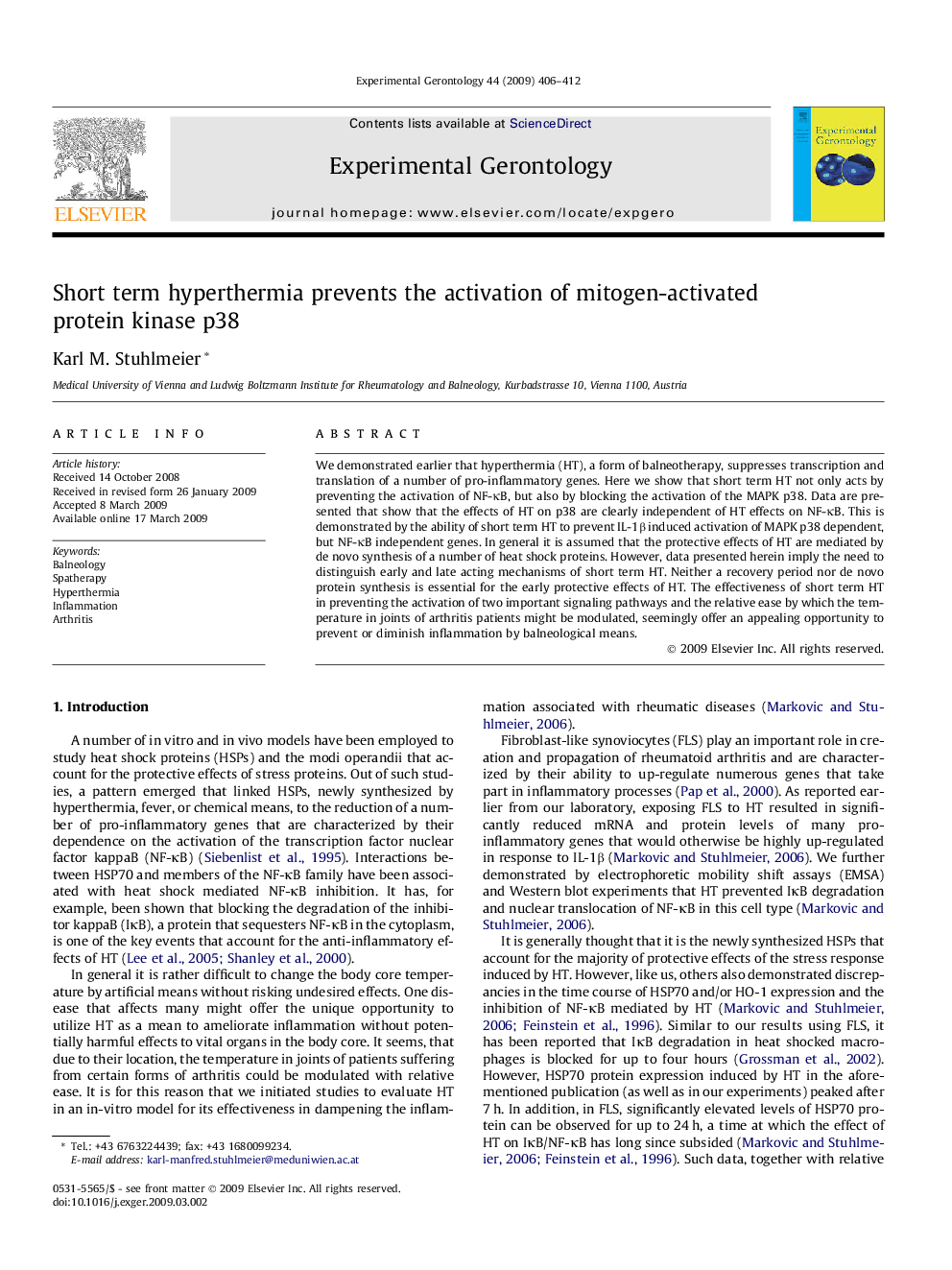| Article ID | Journal | Published Year | Pages | File Type |
|---|---|---|---|---|
| 1906914 | Experimental Gerontology | 2009 | 7 Pages |
Abstract
We demonstrated earlier that hyperthermia (HT), a form of balneotherapy, suppresses transcription and translation of a number of pro-inflammatory genes. Here we show that short term HT not only acts by preventing the activation of NF-κB, but also by blocking the activation of the MAPK p38. Data are presented that show that the effects of HT on p38 are clearly independent of HT effects on NF-κB. This is demonstrated by the ability of short term HT to prevent IL-1β induced activation of MAPK p38 dependent, but NF-κB independent genes. In general it is assumed that the protective effects of HT are mediated by de novo synthesis of a number of heat shock proteins. However, data presented herein imply the need to distinguish early and late acting mechanisms of short term HT. Neither a recovery period nor de novo protein synthesis is essential for the early protective effects of HT. The effectiveness of short term HT in preventing the activation of two important signaling pathways and the relative ease by which the temperature in joints of arthritis patients might be modulated, seemingly offer an appealing opportunity to prevent or diminish inflammation by balneological means.
Related Topics
Life Sciences
Biochemistry, Genetics and Molecular Biology
Ageing
Authors
Karl M. Stuhlmeier,
